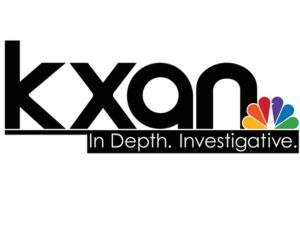 KXAN: Proposed power outage alert system aims to improve communication in future winter storms
KXAN: Proposed power outage alert system aims to improve communication in future winter storms
May 10 — Texas lawmakers have spent hours discussing legislation aimed at addressing the failures of the state’s power grid, infrastructure and lack of reliable emergency communications during February’s deadly winter storm. Advocates and Texas families are urging legislators to address these issues, with less than 30 days remaining in the legislative session.
— READ MORE
 Power Magazine: ERCOT Program Cut Natural Gas Supply During Winter Storm
Power Magazine: ERCOT Program Cut Natural Gas Supply During Winter Storm
May 13 — The Electric Reliability Council of Texas (ERCOT), which operates the power grid for much of the state, has acknowledged it activated a program that pays large industrial power users to reduce their electricity consumption during emergencies. It’s a program similar to those used in other areas, in which factories and commercial buildings are incentivized by utilities and grid operators to cut their use of power, a situation that usually occurs during the heat of summer or cold of winter.
— READ MORE
 Houston Chronicle (Commentary): ERCOT made the February freeze fiasco worse. Texas electricity needs greater oversight.
Houston Chronicle (Commentary): ERCOT made the February freeze fiasco worse. Texas electricity needs greater oversight.
May 12 — As journalists dig into the data–because the governments have not done it so far—we are learning how an under-funded, toothless electric grid manager likely made the February Freeze more deadly and cost Texas consumers billions of dollars in unnecessary bills.
— READ MORE
 Texas Standard: Is Renewable Energy To Blame For An April Power Crunch?
Texas Standard: Is Renewable Energy To Blame For An April Power Crunch?
May 12 — Investigations from The New York Times and Columbia Journalism Review have identified Metric Media as a network of sites masquerading as local news. Over 1,300 sites have been launched across the nation, including 74 in Texas. According to the investigations, the media company accepts payment from clients, most with a conservative viewpoint, in exchange for tailor-made news articles.
— READ MORE
 KUT: It’s Becoming Clearer Who Profited From The Blackouts, And That’s Raising Questions Of Price Gouging
KUT: It’s Becoming Clearer Who Profited From The Blackouts, And That’s Raising Questions Of Price Gouging
May 10 — Until recently, companies that made a lot of money during the freeze have tried to keep a low profile about it. But quarterly financial reports have come due making that information harder to conceal.
— READ MORE
 Wall Street Journal: As Texas Went Dark, the State Paid Natural-Gas Companies to Go Offline
Wall Street Journal: As Texas Went Dark, the State Paid Natural-Gas Companies to Go Offline
May 7 The Electric Reliability Council of Texas activated a program that pays large industrial power users to reduce their consumption during emergencies. But the grid operator, known as Ercot, didn’t know who was being paid to participate in this program and what type of facilities were getting shut off, it has since acknowledged.
— READ MORE
 KTSM: El Paso Electric expects to file rate case this year
KTSM: El Paso Electric expects to file rate case this year
May 7 — On Monday, the El Paso City Council will receive a presentation from the electric company about current and upcoming applications with the Public Utility Commission. The meeting starts at 9:05 a.m. and can be viewed on the city’s YouTube page.
— READ MORE
 Houston Chronicle: NRG Energy is Placing Its Headquarters Solely in Houston
Houston Chronicle: NRG Energy is Placing Its Headquarters Solely in Houston
— READ MORE
 Houston Chronicle: ERCOT Forced Dozens of Natural Gas Facilities Offline During Winter Storm
Houston Chronicle: ERCOT Forced Dozens of Natural Gas Facilities Offline During Winter Storm
— READ MORE
 Spectrum News: What should Texas do with its old wind turbine blades?
Spectrum News: What should Texas do with its old wind turbine blades?
May 8 — Finding an environmentally friendly and economical way to dispose of the blades will become a growing problem. In the U.S. alone, there are an estimated 54,000 turbines in operation at the moment with 164,000 blades, according to Global Fiberglass Solutions. Over the next two years, an estimated 35,000 of those blades will be decommissioned and need somewhere to go.
— SEE THE REPORT
 S&P Global: Winter storm bills still pending in Texas Legislature; regulators await action
S&P Global: Winter storm bills still pending in Texas Legislature; regulators await action
May 7 — Texas lawmakers had on May 7 more than 30 bills pending, designed to address the deadly mid-February winter storm that left about 4 million customers without electricity for various periods across four days, and state regulators are awaiting lawmakers’ decisions before advancing eight storm-related projects.









